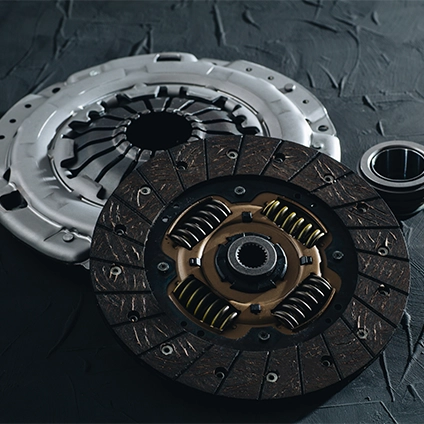When buying or renting a vehicle, one of the biggest questions that comes to mind is “should I go with diesel or gasoline?” In the long run, this choice can affect many factors from fuel consumption to maintenance costs, and even environmental impact. In this article, we will examine the differences between diesel and gasoline engines and see which option may be more suitable for your needs.
What is a Diesel Engine?
Diesel engine is a type of internal combustion engine that uses the auto-ignition of fuel with a high compression ratio. These engines are known for their ability to produce higher torque and more fuel efficiency. They offer longer engine life and high performance at low RPM. Diesel vehicles are suitable for drivers traveling long distances and carrying heavy loads. The basic features of diesel engines include:
- High Compression Ratio: Diesel engines reach high temperatures by compressing the air-fuel mixture, and this high temperature enables the spontaneous combustion of the diesel fuel.
- Fuel Efficiency: Diesel engines are more fuel efficient than gasoline engines. This is due to the high energy density of diesel fuel and the high compression ratio of the engine.
- High Torque at Low RPM: Diesel engines produce higher torque at lower RPM. These features make them a popular choice for drivers traveling long distances and carrying heavy loads.
- Maintenance and Costs: Diesel engines generally last longer than gasoline engines, but they can be more expensive to maintain.
What is a Gasoline Engine?
Gasoline engines are ideal for users who generally have lower initial costs. These engines are preferred for city driving and high acceleration performance. Their maintenance and repair costs are lower than diesel engines. They are known for the following features:
- Working Principle: Gasoline vehicles use internal combustion engines. The engine compresses the air-gasoline mixture and uses spark plugs for ignition.
- Acceleration and Performance: Gasoline engines generally climb to higher speeds than diesel engines. This is due to the faster combustion and higher RPM capacity of gasoline engines.
- Maintenance and Costs: Gasoline engines have a simpler structure than diesel engines, which makes maintenance and repair easier and less costly.
- Quiet Operation: Gasoline engines run quieter and produce less vibration than diesel engines.
Differences of Diesel and Gasoline Engines
The main differences between diesel and gasoline vehicles are evident in fuel efficiency, engine life, performance and maintenance costs. Diesel vehicles are more efficient and have higher torque, while gasoline vehicles are much faster and less expensive to maintain.
Since they have a higher compression ratio, diesel engines offer a high acceleration performance with increased torque. However, since diesel vehicles cannot reach high RPMs, they produce lower horsepower than gasoline vehicles.
Differences of Diesel and Gasoline Engines at 100 KM
The difference between the fuel consumption of gasoline and diesel vehicles at 100 kilometers is generally associated with diesel vehicles being more fuel efficient. Diesel engines generally consume less fuel than gasoline engines. This is because diesel engines use diesel fuel, which has a higher compression ratio and higher energy density. These features enable diesel engines to consume less fuel per kilometer than gasoline engines.
To that end, specific models and engine features must be considered while determining the differences between gasoline and diesel engines at 100 kilometers.
Avis Filo offers a large fleet of diesel and gasoline vehicles that will meet everything you may need in your fleet rentals. Whether you opt for a gasoline vehicle for traveling short distances in the city or a diesel vehicle for long journeys, Avis Filo's wide range of vehicles makes your rental process more comfortable with options that suit all your needs!

{{ item.Title }}
{{ item.Description }}
{{ item.ProductProperties.ProductName }}
{{ item.ProductProperties.ProductDescription }}

{{ item.Title }}
{{ item.Description }}




